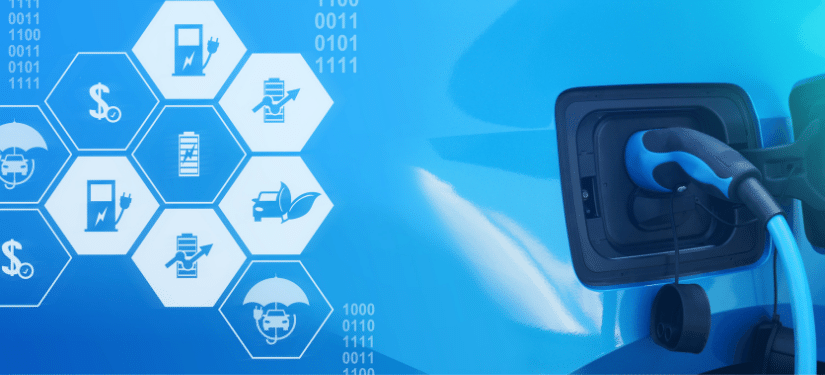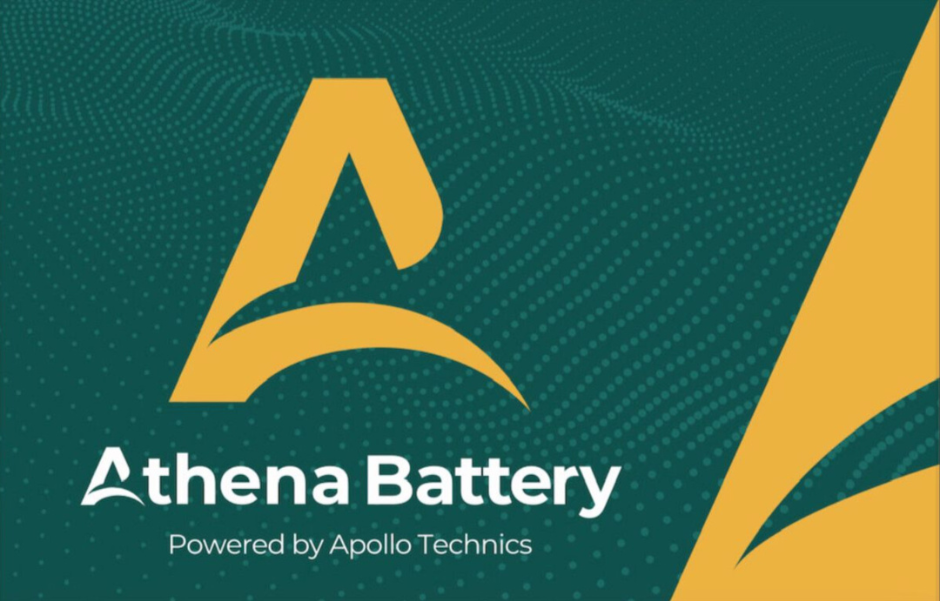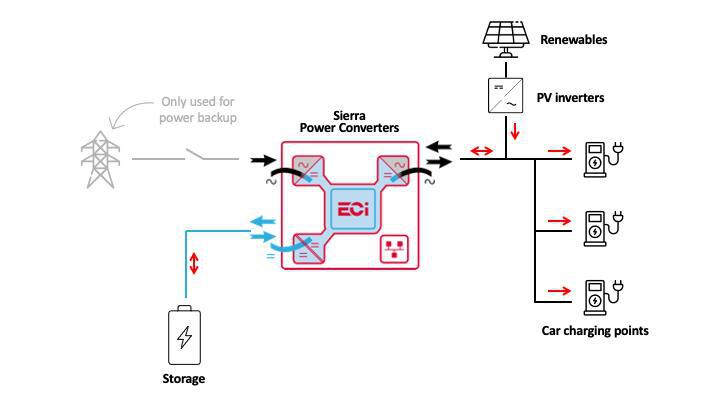
Background
The market for energy storage solutions for car battery charging is rapidly growing. This growth is driven by the increasing demand for electric vehicles and the need for charging solutions in areas where the grid is sometimes not able to provide enough power. To meet this demand, a safe and attractive energy storage solution is needed. The solution should be compact and visually appealing and should include management of the car charging poles through IoT.
Apollo Technics, a start-up located in Sint-Truiden, Belgium, that specializes in the Electrotechnical installation work for buildings and industrial maintenance, has received these kinds of requests.

They have approached CE+T with a proposal to build a compact solution using CE+T’s Sierra cabinet.
Proposed Solution
The current off-grid electric car charging solutions are functional but visually unappealing for non-industrial customers, requiring assembly by an installer and not CE certified. Therefore, Apollo Technics has approached CE+T with a proposal to build a compact and visually appealing solution using :
- CE+T’s Sierra multidirectional converter cabinet and Inview monitoring
- Fronius solar inverter of 20 kWp
- Three Etrel car charging poles of 22kW
- FZSonick Sodium metal chloride battery, both safe and environmentally friendly and does not require maintenance

Discover the complete solution in this video
Some of the advantages of the final outcome of the proposed solution include:
- Off-grid EV charging: three charging stations with cables, eliminating the need for additional grid connection.
- 100% powered by renewable energy with a UPS function for backup or future expansion
- Low CO2/Global Warming Potential (GWP) footprint : the battery has a total GWP footprint of 74.44 kgCO2/kWh, significantly lower than lithium’s 172 kgCO2/kWh.
- Made in Belgium: the cabinets are made in Belgium by CE+T, the PV installation is carried out by local installers and Athena-Battery by Apollo Technics handles the on-site installation.
- Meeting safety requirements: both the cabinets and battery are certified, which meet required safety regulations
- Easy installation: the cabinets can be placed inside the office/production building without the need for additional fire safety measures.
Focus on the role of CE+T equipment
The choice of Sierra converters was motivated by its innovative topology and bi-directional ports, which works as a real energy blender. With this design, there is no need to have separate inverters and rectifiers from different brands, as everything is integrated into one module.
The system is connected to the monitoring solution Inview to manage the limitations of the solar converter and ensure optimal use of the battery’s charge. The battery’s charging status can be monitored through a modbus connection, and the output of the solar converter is managed to maximize the available charge for the batteries, utilizing the sunspec standard.
Furthermore, the Sierra bi-directional converters have been engineered to handle imbalances between the charging poles and the AC input (grid). If an imbalance towards the charging poles is detected, the system will ensure that the energy flowing into the grid remains stable. This ability to manage imbalances results in a smooth and efficient operation of the system, providing reliable and consistent energy management.
Finally, the configuration of Sierra systems is redundant, meaning that if one module fails, the energy demand will still be met because the total energy demand is distributed among the remaining modules. As a result, the customer does not have to worry about a complete system outage. This redundant configuration provides added reliability and peace of mind for the customer.
Future Opportunities
The success of the first project has opened up future opportunities for Apollo and CE+T to expand their collaboration. The two companies are looking to expand into the following areas:
- Semi-off-grid cabinets/containers, with storage capacities ranging from 40 kWh to 200 kWh and limited grid connections.
- Off-grid cabinets with small gensets for charging and backup, particularly in areas where emissions and CO2 output must be kept to a minimum.
- UPS backup systems to support grid-connected EV charging or to optimize the use of renewable energy in buildings or facilities.
As the demand for safe and efficient energy storage solutions for electric vehicle charging continues to grow, particularly in areas with limited grid connections or power supply, systems manufactured in Belgium using FZSonick batteries can be exported and tested worldwide.